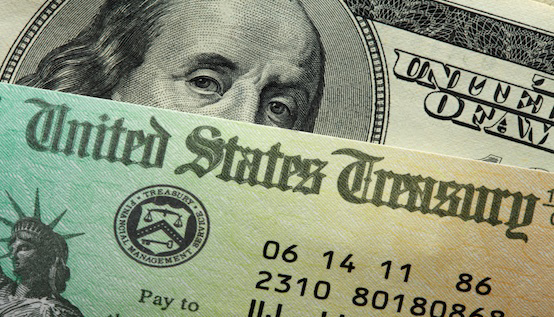This year, many taxpayers who expect a refund plan to save it or use it for day-to-day expenses, according to a recent survey by the American Institute of CPAs. Harris Interactive conducted the survey for National Financial Literacy Month.
As Americans deal with a smaller paycheck due to the payroll tax cut expiration, many taxpayers are concerned about their financial well-being. Approximately 46 percent of the individuals surveyed planned to save their tax returns while 37 percent expected to use it to cover day-to-day expenses, like gas and groceries. One-third of Americans planned to pay debt with their refunds.
The survey found that since the increase in Social Security withholding took place, 70 percent of taxpayers are saving less in their emergency funds. Other areas impacted by the lowered take-home pay include cable and digital entertainment, retirement accounts and payments for credit cards, utilities and rent or mortgage.
“Last year the IRS sent checks totaling nearly $310 billion to taxpayers, underscoring the significance of tax time to American households,” said Ernie Almonte, CPA, CGMA, chair of the AICPA’s National CPA Financial Literacy Commission. “This year, in the wake of a paycheck squeeze, many Americans are counting on those refunds for relief – a way to bolster savings or shore up budgets. It’s critical that they have a well thought out plan for using the funds to maximize the benefit to their financial well-being.”
The National CPA Financial Literacy Commission encourages taxpayers who receive a refund this year to:
- Prioritize your tax refund allocation. Taxpayers struggling to cover basics such as food, shelter or healthcare should use their refund to cover those basics first. The next priority should be building or growing their emergency fund.
- Split your refund. Many taxpayers with debt may be tempted to apply the entire refund towards paying off debt, but it would be better to split the money between your emergency fund and your debt. Doing so will reduce your liabilities and while ensuring you have cash on hand for life’s unexpected expenses. This will also prevent you from encountering more debt if an emergency arises.
- Pay high interest accounts. Paying the debt account with the highest interest rate first will help you tackle debt with the highest overall cost faster and stretch your dollars.
- Plan for the long-term future. If you already have an emergency fund and no debt, you may be tempted to treat yourself by splurging on a new toy or vacation. However, it would be more beneficial to make an extra mortgage payment or contribution to your retirement account.
The AICPA has conducted annual surveys for the past six years to assess the top financial concerns and well-being of Americans. Approximately 1,011 adults across the nation responded to the phone survey conducted between March 14 and March 17.
Thanks for reading CPA Practice Advisor!
Subscribe Already registered? Log In
Need more information? Read the FAQs





